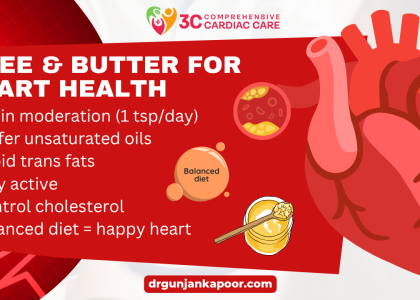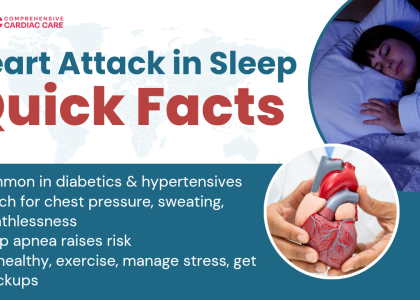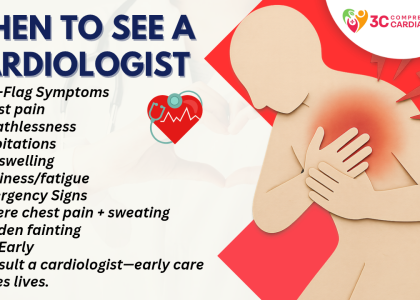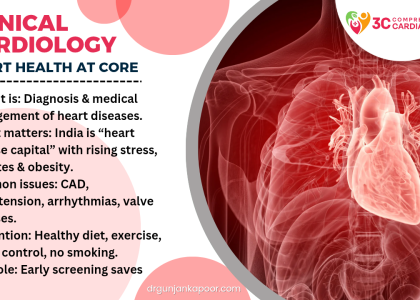The Role of Sleep in Cardiovascular Health
When we think of heart health, we often picture salads over steaks, jogging at sunrise, or cutting back on salt. ♀️
But there’s one powerful heart protector most people completely overlook: SLEEP. ✨
That’s right — your cozy, quiet 8 hours in bed may be doing more for your heart than any treadmill or kale smoothie ever could. ️
Let’s explore this less-talked-about secret to a stronger, healthier heart. ❤️
Sleep Isn’t Just Rest — It’s Recovery
Sleep is active therapy for your body. During deep sleep, your heart rate and blood pressure naturally dip, giving your cardiovascular system time to rest and repair. ️
If you don’t sleep enough, your body stays in a “high-alert” mode:
-
Your heart beats faster
-
Blood pressure stays elevated
-
Inflammation increases
-
Hormonal imbalance creeps in
Over time, this nightly stress takes a huge toll on your heart.
Sleepless Nights = Greater Heart Risk
Several studies have shown direct links between poor sleep and heart disease. People who consistently sleep less than 6 hours a night are at higher risk of:
-
Hypertension (high blood pressure) ⬆️
-
Stroke
-
Coronary artery disease
-
Irregular heart rhythms (arrhythmia) ⚡
Fact: According to the American Heart Association, sleep should be considered a “vital sign” for heart health — just like cholesterol or blood pressure!
Real Numbers, Real Risk
-
People sleeping <6 hours have 20% higher risk of heart attack
-
Poor sleep can raise blood pressure even in healthy adults
-
Sleep deprivation disrupts glucose metabolism and increases stress hormones
-
Sleep disorders like sleep apnea increase the risk of sudden cardiac death
That’s not just a coincidence — it’s a wake-up call.
Real-Life Example: Sleep Saved Sanjay
Sanjay, a 38-year-old marketing executive, was fit, active, and appeared healthy — until he suffered a minor heart attack. His tests were confusing: no cholesterol issues, normal weight, regular workouts.
The culprit? Chronic sleep deprivation.
Working late nights, sleeping 4–5 hours a night for years had taken its toll. Doctors diagnosed severe hypertension triggered by poor sleep.
Now, after prioritizing 7–8 hours of restful sleep, his blood pressure is back to normal — no medication needed. ❤️
Types of Sleep That Matter
Not all sleep is created equal. Here’s what your heart really needs:
1. Deep Sleep (Stage 3 NREM)
♀️ Body slows down, heart rests. This stage is essential for recovery.
2. REM Sleep (Dream Phase)
Brain and body reset, stress hormones are regulated.
Disruptions to these stages — due to insomnia, stress, or sleep apnea — interfere with the heart’s natural rhythm and healing process.
Sleep Apnea: The Hidden Threat
One of the most dangerous sleep-related heart risks is obstructive sleep apnea (OSA) — a condition where breathing repeatedly stops and starts during sleep.
Warning Signs:
-
Loud snoring
-
Daytime fatigue
-
Gasping for air at night
OSA is linked to:
-
High blood pressure
-
Heart enlargement
-
Irregular heartbeats
-
Even heart failure
If you or a loved one shows signs, consult a doctor. Sleep studies save lives.
️ Simple Sleep Habits = Stronger Heart
Here are science-backed sleep strategies that can help boost heart health:
1. Stick to a schedule
Go to bed and wake up at the same time—even on weekends. ️
2. Ditch screens 1 hour before bed
Blue light affects melatonin, the sleep hormone. Try a book or meditation instead. ♂️
️ 3. Avoid heavy meals & caffeine late evening
They can delay sleep and disturb your deep sleep phases. ☕❌
♀️ 4. Exercise during the day
It improves sleep quality—but avoid late-night workouts.
️ 5. Cool, dark room
Optimal sleep environment = 18–22°C, no noise, blackout curtains. ️
Takeaway: Sleep is Not Lazy — It’s Lifesaving
Your heart doesn’t just beat to keep you alive — it depends on quality sleep to stay healthy.
So, the next time you think of skipping sleep to squeeze in a few more work hours or late-night scrolling, remember:
Your heart is working overtime when you don’t rest.
Instead of asking “How much did you do today?”
Try asking: “Did I give my body enough time to recover?” ❤️
️ Final Thought
Sleep isn’t a luxury — it’s a biological necessity.
If we treated sleep like medicine, we’d have fewer heart attacks, strokes, and stress-related problems.
So tonight, tuck in early, turn off the distractions, and let your heart do what it does best — heal.
#HeartHealth #SleepMatters #SilentHealer #CardiovascularCare #Wellness #PreventiveHealth









